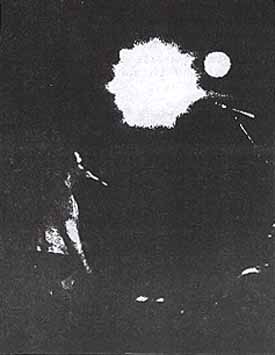


Husker Du is a children's memory game. In Danish it means Do You Remember. Husker Du is also Bob Mould on guitar and vocals, Greg Norton on bass and backing vocals, and Grant Hart on drums and vocals, definitely one of the best.
"I don't know if we were part of the punk scene or not. I guess people tell us we were, by default I suppose" says Bob. "People weren't liking us back then in '79, so we figured the hell with it, we'll play as fast as we can and be as obnoxious as we can. We did that for a couple of years. Then we went to Los Angeles for the first time in May '81 and found there's other people doing this. We better think of something else to piss people off. So, we started singing pretty songs, with real melodic riffs and three-part harmonies at a pretty fast beat. And we'd have these skin heads come to the shows, and they wouldn't know what to make of it, you know. Now, we play exactly what we want to play. Instead of worrying about confusing people or pissing 'um off, we just play what we want. That usually does it anyways.
With the release of Zen Arcade, many people thought they had discovered a new band, but actually Husker Du has been together for about 7 years. Their first single and album, was released on their own Reflex label. Husker Du has always been their own boss, even by being their own management. "It started early on, we really didn't have anyone pulling for us, so we decided we're not going to sit around and wait for something to happen. We are just going to do it ourselves.


